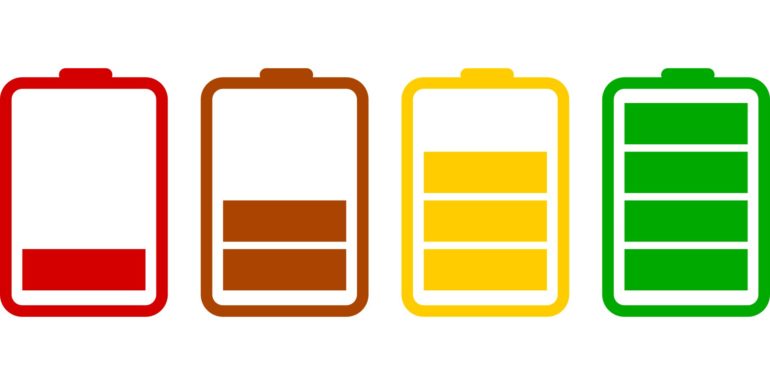Electrical batteries are increasingly crucial in a variety of applications, from integration of intermittent energy sources with demand, to unlocking carbon-free power for the transportation sector through electric vehicles (EVs), trains and ships, to a host of advanced electronics and robotic applications.
A key challenge however is that batteries degrade quickly with operating conditions. It is currently difficult to estimate battery health without interrupting the operation of the battery or without going through a lengthy procedure of charge-discharge that requires specialized equipment.
In work recently published by Nature Machine Intelligence, researchers from the Smart Systems Group at Heriot-Watt University in Edinburgh, UK working together with researchers from the CALCE group at the University of Maryland in the US developed a new method to estimate battery health irrespective of operating conditions and battery design or chemistry, by feeding artificial intelligence (AI) algorithms with the raw battery voltage and current operational data.
Darius Roman, the Ph.D. student that designed the AI framework said: “To date, the progress of data-driven models for battery degradation relies on the development of algorithms that carry out inference faster. Whilst researchers often spend a considerable amount of time on model or algorithm development, very few people take the time to understand the engineering context in which the algorithms are applied. By contrast, our work is built from the ground up. We first understand battery degradation through collaborations with the CALCE group at the University of Maryland, where in-house degradation testing of batteries was carried out. We then concentrate on the data, where we engineer features that capture battery degradation, we select the most important features and only then we deploy the AI techniques to estimate battery health.”
In addition, the researchers found that current data-driven models for battery health estimation do not consider model confidence. However, this is often critical for decision making to understand how the AI model came to a certain conclusion and whether the model can be trusted. In their work, the proposed AI model is capable of quantifying uncertainty in its predictions to better support operating decisions.
The developed framework scales up with new chemistries, including the new upcoming solid-state batteries, battery designs and operating conditions and has the potential to unlock new strategies of how batteries can and should be used.
Valentin Robu, from the Smart Systems Group said: “Batteries are increasingly critical to a variety of applications, from robotics to renewable energy integration. A key challenge in these domains is having an accurate, high-confidence estimates of battery state of health. Consider for example, a robotic asset operating in a remote environment such as deep subsea monitoring, where assuring the health of the battery deployed on the robot is mission-critical. Similarly, for energy applications, having an accurate estimate of the remaining useful lifetime of the battery is often critical to a project’s economic viability.”
Recycling – A batteries passport
More information:
Darius Roman et al, Machine learning pipeline for battery state-of-health estimation, Nature Machine Intelligence (2021). DOI: 10.1038/s42256-021-00312-3
Provided by
Heriot-Watt University
Citation:
New machine learning method accurately predicts battery state of health (2021, April 9)
retrieved 9 April 2021
from https://techxplore.com/news/2021-04-machine-method-accurately-battery-state.html
This document is subject to copyright. Apart from any fair dealing for the purpose of private study or research, no
part may be reproduced without the written permission. The content is provided for information purposes only.



